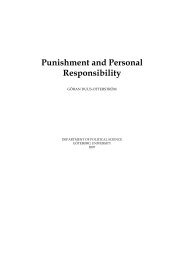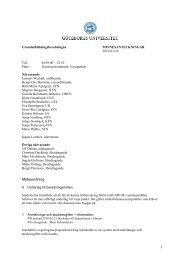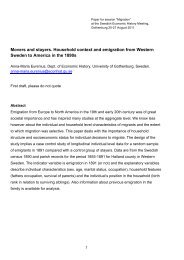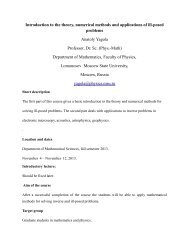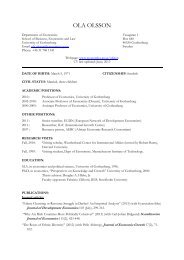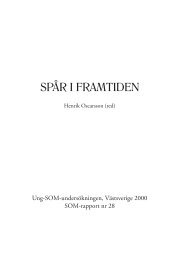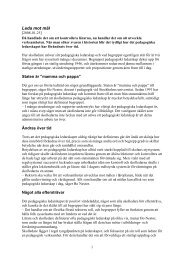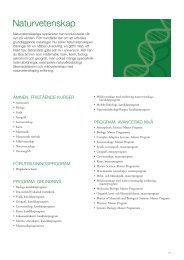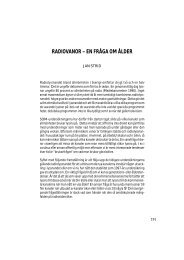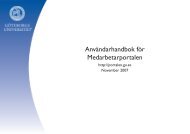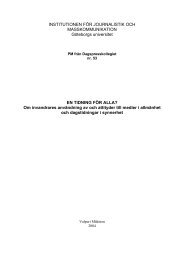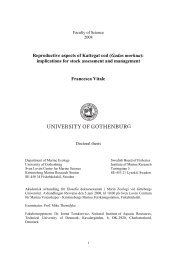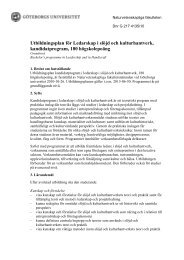Equal Opportunities Work - Theories about Practice
Equal Opportunities Work - Theories about Practice
Equal Opportunities Work - Theories about Practice
Create successful ePaper yourself
Turn your PDF publications into a flip-book with our unique Google optimized e-Paper software.
oth women and men will be able to leave their mark on education and<br />
research.<br />
The quotation referred to above also leads us to ask whether or not gender<br />
research is normative. I discuss this question below, passing first through the<br />
area where the question of how to define a feminist researcher is discussed.<br />
Ulla M. Holm provides the following answer:<br />
A feminist researcher declares her stance in terms of women's politics,<br />
i.e., she takes feminist stands and is a spokesperson for ieminist<br />
issues. Her research has explicitly normative aims. Her political<br />
involvement means speaking out in favor of the liberation of *o*1<br />
from various forms of oppression and discrimination. Her theoretical<br />
considerations rest on this involvement and are an indispensable part<br />
of this liberation process.2e<br />
Here, Holm intertwines two ideas that may also be separated, In her view, a<br />
feminist researcher is characterized by her political involvement, and in doing<br />
feminist research she strives for women's liberation. Thus, the aim of her<br />
research is emancipative. Moreover, a feminist's research is based on<br />
analytical or theoretical perspectives rooted in her politicat involvement.<br />
According to Holm, this is a theoretical gender perspective. All feminists reject<br />
androcentric perspectives, and some feminists also want to see gynocentric<br />
perspectives developed.3o<br />
Let us now make an analytical distinction between basing one's research on<br />
some kind of theoretical gender perspective and working for women's political<br />
or social rights in society. We might initially call these two activities<br />
"feminism in research theory" and<br />
"feminism in politics".<br />
These two terms may be combined in four different ways, characterizing<br />
four kinds of researchers:<br />
1. Researchers who are feminists in both the theoretical and the political<br />
senses, and whose research often has explicitly emancipative aims.<br />
29 Hot., lJ., Modrande och praxis,Daidalos 1993, (..Mothering and praxis,,, p.33).<br />
30 ruia. p.tz.<br />
In this quotation, it is understood that women researchers are being discussed. Can a man be a feminist? Cannot<br />
both women and men make analyses on the basis of a gender persfective and work to promote equality of<br />
opportunity? Or is it necessary.to have personal experience ofbeing subordinated owing to on"', ,"* in order to<br />
call oneself a feminist, in which case men are excluded. Shall we .u=y tnut feminism."qoir., personal experience<br />
but that there can be gender researchers of both sexes?<br />
27




